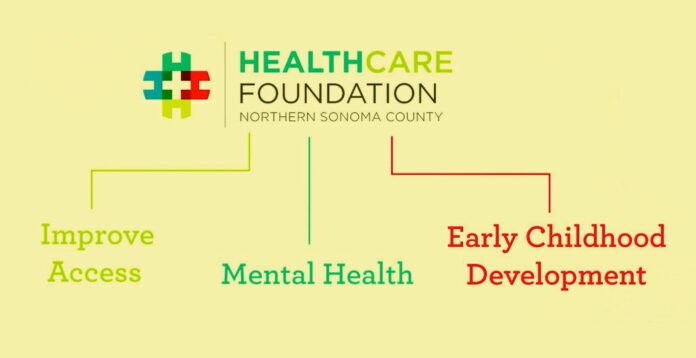Healdsburg somewhat ahead of the curve, Geyserville somewhat behind
During spring and summer 2017 the Healthcare Foundation of Northern Sonoma County conducted a series of meetings and events for the purpose of identifying and mapping the health and social services available to residents in northern Sonoma County.
It focused on four towns — Cloverdale, Geyserville, Windsor and Healdsburg — and sought to identify gaps and needs as well as successes. Fifty-four service providers representing 39 different organizations took part, sharing information about the services they provide, the people they served and the gaps and unmet needs they experienced; each session was two-and-a-half hours long. There were also bilingual listening sessions with community members, according to CEO Debbie Mason.
The data mapping has been completed, the Healthcare Foundation released its report in August of 2017 and it is currently presenting it to the various municipalities that were targeted. All of the municipalities were shown to have unique challenges, but there were overarching issues that were found to impact all of them.
First and foremost was a profound shortage of mental health professionals, especially those who are bilingual or who can provide bicultural counseling. Also, the lack of evening or weekend hours for those providers that do exist means that large segments of the population have no access to care, even when it exists.
According to the report, this topic dominated the discussion at every session. In addition to the shortage of providers (which was seen as the key issue) the lack of a county mental health services hospital is also believed to play a role in the challenge of getting help for patients that need it.
In addition, stress and a feeling of being overwhelmed was discussed by the current providers of these services, along with “an undertone of helplessness because of the current political climate, along with uncertainty about the impact of potentially significant changes at the federal level.”
Similarly, the shortage of providers is further complicated by “the inability to compete with wages offered by for-profit enterprises and high housing costs.” This housing disparity, combined with a lack of convenient mass transit is seen as negatively affecting both the clients and the agencies, who are unable to recruit and retain the staff they need.
Issues surrounding public transportation also effects access to services of all kinds, especially as services in the county become more and more centralized. “A lack of coordinated, timely and effective transportation significantly limits accessibility,” the report states.
Centralized services are neither “accessible or convenient for residents who need them,” and all of these issues are greatly compounded by immigration concerns and language barriers, which further limits access and increases stress.
The report also identified the need for additional knowledge of services, not just for potential clients, but among service providers themselves, who were found to lack knowledge about other service providers and programs, including the county’s own 211 service which provides a free referral for any health or human service need.
Additional issues impacting the care available includes the challenges of homelessness or those on the edge of homelessness, a lack of services for domestic violence victims, insufficiency of childcare in the county, lack of senior services in some communities, lack of dental care and finally the limited nature of local food insecurity programs.
“Coming together to figure out how to take a comprehensive regional approach to these issues is the only way our region can resolve some of these issues, “ the report concludes. “No town has the resources on its own, nor do the small nonprofits in the northern region serving within each town.”
In Geyserville, a combination of no local government and a small school district creates a significant care gap, according to the report. Need for better domestic violence legal programs and access to school-based mental health services topped the list of needs, though their overall needs mirrored those of the great north county area.
Healdsburg on the other hand, comes out ahead in many ways as it has a hospital and community health center, and is considered a “more affluent and strongly positioned community.”
According to the report, attendees spoke of the need for more mental health access, access to higher and arts education, better in-home care for seniors and noted a growing homeless population. The gaps in Healdsburg were considered more regional, than specific, however, Healdsburg providers expressed particular concern over the Trump administration and related laws, policies and economic shifts.
In response to these findings, the Healthcare Foundation will be putting forth several new initiatives, Mason said, including a Mental Health Talent Pipeline, to help funnel counselors and other mental health workers who are finishing their degrees to this part of the county and provide them support so they stay. The Foundation will be providing an initial grant of $100,000 to get the program started, and will be doling out the first part of the grant in December.
“We went directly to the universities putting out school counselors, marriage and family counselors and nurse practitioners with a specialty in mental health,” Mason said. “And we said, ‘how do we get them to learn Spanish and stay in the northern county?’ We hope they can stay here and we can provide long term stability—we get them here, we want to keep them here.”









